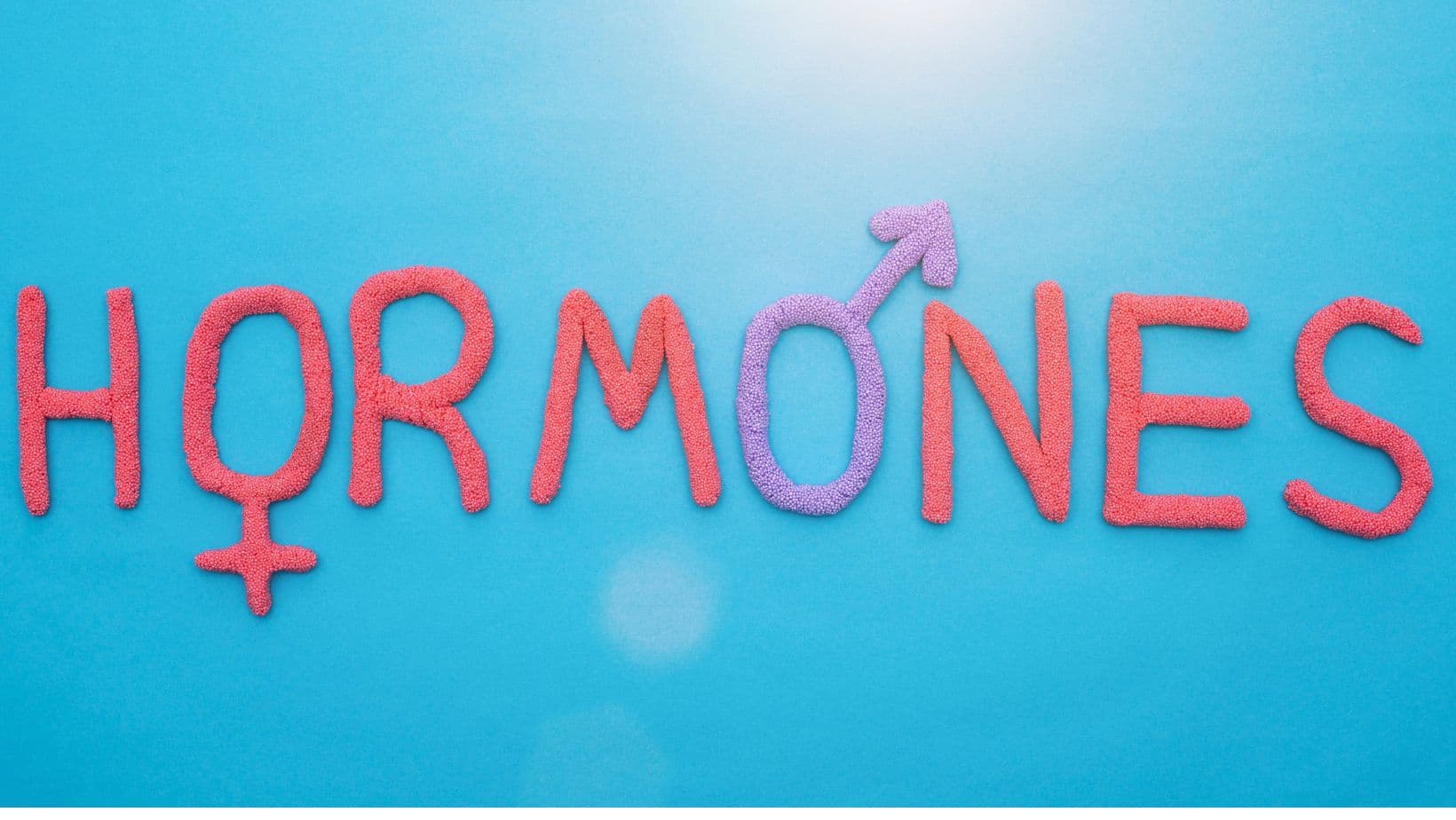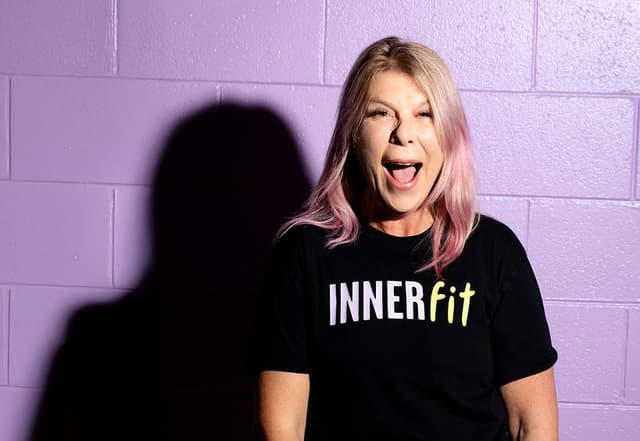
The Hormone Fat Loss Connection
- /
- Blog
- /
- The Hormone Fat Loss Connection
Published on 7th of April, 2023
Hormones and fat loss connection is probably one of the most complex but yet simple topics we need to understand. Boys……. this affects you too… it’s NOT just a girl thing.
Men have hormonal cycles too!! Here’s a fun fact, while they obviously may not be the same as the girls “monthly” cycles, men actually have a 24hr cycle where their testosterone levels fluctuate from highest in the morning and lowest at night.
Technically we can’t control our hormones but we can certainly do things to influence them. Foods we choose to eat and our lifestyle can cause our hormones to go up and down and extra body fat can have a significant impact on the way our hormones work.
So what are hormones?
They are your body’s chemical messengers, sending signals into the bloodstream and tissues. Over 50 have been identified in the human body. These signals tell your body what to do and when to do it. They control a number of functions including metabolism – how your body gets energy from the foods you eat, homeostasis such as blood pressure, blood sugar regulation – water and electrolyte regulation and body temperature, reproduction, growth, sleep-wake cycle, mood and sexual health and function. All connected to fat loss.
Yep, they are busy!
Let’s get to know a few and see how they connect
Insulin
Really needs a blog to itself, I am going to do the best I can to keep this one as short as I can.. but this one is a biggy in the fat loss connection!
Insulin are the main storage hormones in our bodies, produced in the pancreas. Our bodies secrete insulin in small amounts throughout the day and in larger amounts after meals. This hormone then transfers glucose from food to our cells for either energy or storage depending on your bodies current needs.
Here comes one of the main connections to fat loss failure and your hormones. Insulin resistance! A way to common condition that causes your cells to stop responding to insulin. The result – high blood sugar because insulin can’t do its job and move glucose into your cells so now it just builds up in your blood.
Insulin is released by the pancreas in response to carbohydrates consumed, so now your pancreas tries to help by producing even more insulin, cells stop responding to all this insulin…they become insulin resistant and over time the pancreas gives up and stops producing the amount of insulin your body needs!
When we have excess insulin and blood sugar in our blood stream our body will put that excess into storage. Some can be stored in our liver and muscles, however when these are full the body starts to store the extra as……yep, you guessed it…..FAT!
Leptin
The “fullness” hormone. It works by telling your hypothalamus (the part of our brain that regulates appetite) that you’re full. It is a hormone secreted by fat cells that affects the way the body stores and burns energy.
People with obesity often experience leptin resistance and the message to stop eating doesn’t reach the brain causing overeating. The levels in your body are directly related to how much body fat you have.
Leptin works with another hormone in our bodies that signals hunger, so up next we have….
Ghrelin
Essentially the opposite of Leptin.
It is the hunger hormone that send the messages to you hypothalamus indicating that your stomach is empty and needs food. Its main function is to increase appetite.
Restricting calories often leads to increased ghrelin levels, leaving you hungry additionally your metabolism tends to slow down and leptin levels decrease.
Cortisol
Now this is one most of you will have heard lots about. Commonly referred to as the stress hormone and produced by your adrenal glands. Cortisol is a steroid hormone and stimulates your fat and carbohydrate metabolism, creating a surge of energy in your body.
Elevated cortisol can increase appetite, cause cravings for sweet, fatty and salty foods and lead your body to produce less testosterone. This may cause a decrease in muscle mass and slow down how many calories your body burns. The weight we gain as a result from a spike in cortisol is often found around the belly.
Sex Hormones
Sex hormones including estrogen, progesterone, testosterone and DHEA have a significant effect on our ability to maintain or lose weight.
- Progesterone does not directly cause weight gain but it does increase your hunger. But here’s the big connection. During peri-menopause this is often the first hormone to decrease leading to estrogen dominance.
- Estrogen dominance can lead to insulin resistance which causes our bodies to store fat, it can cause cravings, poor eating behaviors and slow down the thyroid gland which decreases metabolism.
- Testosterone has a powerful influence impact on metabolism most notably blood sugar control, the ability to put on muscle and fat regulation. Levels drop with age in both men and women and can cause an increase in body fat, insulin resistance and metabolic syndrome. It also plays a major role in fat distribution and how much muscle you are able to build and maintain. Low levels increase belly fat.
- DHEA is a hormone the body makes in the adrenal gland. It helps produce other hormones. Which ones? Estrogen and testosterone
So now what?
Lifestyle, habits and a balanced diet can optimize hormone levels.
- Regular exercise
- Wholefoods
- Prioritise protein
- Healthy fats
- Weight management
- Optimize sleep
- Low glycemic carbs
- Stress management
Some hormones influence almost all of our cells and others influence a small number in specific organs.
These hormones connected to fat loss and obesity influence our appetite, metabolic health and fat distribution. Taking steps to keep these hormones at optimal levels can have a massive positive impact on your ability to lose fat and maintain optimal weight for a healthier lifestyle.
YOU can influence your own journey……hormones can influence behaviour and behaviour can sometimes influence hormones.

Simone: Manager, Nutrition Coach
I spent decades in the grip of eating disorders — they shaped how I ate, felt, and saw myself. That began to change in my mid-40s when an autoimmune diagnosis forced me to confront not just my health, but my patterns, beliefs, and buried pain.
With support and honesty, I began to heal. I discovered how deeply connected everything is: food, gut health, hormones, emotions, and self-talk. Real health isn’t about restriction or shame — it’s about awareness, education, growth, and compassion.
Now, I write to share what I’ve learned — not just for women (though that’s who I know best), but for anyone ready to grow, heal, and take back ownership of their life.
